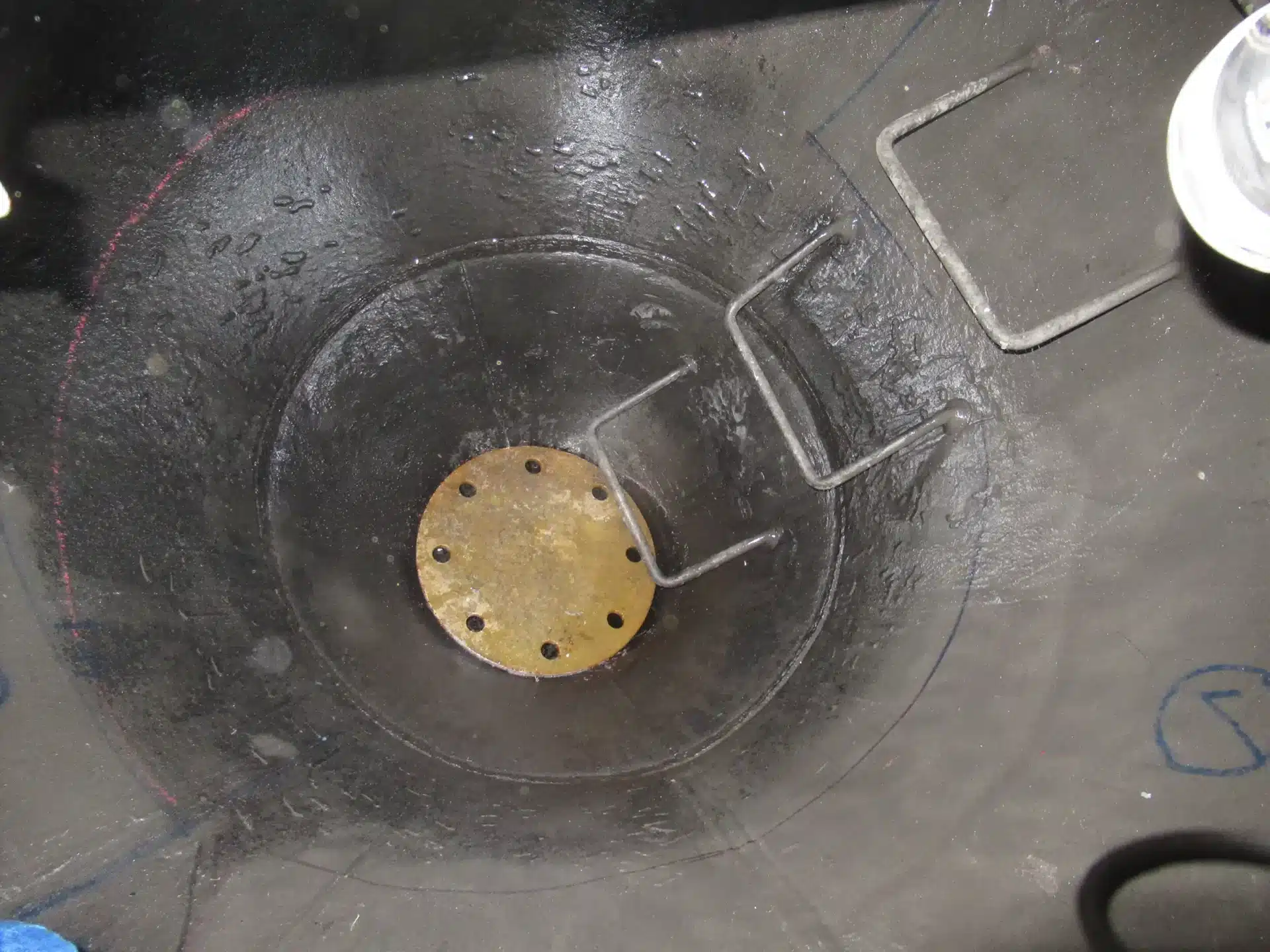Hot potassium carbonate process is licensed by Honeywell UOP as the “UOP Benfield™ Process.” Carbonate wash towers are essential for Carbon Dioxide removal in Syngas, ethylene production and other processes. However, caustic can attack the vessel shell, leading to Caustic Stress Corrosion Cracking, particularly under high applied or residual stress levels.
This case study looks at an IGS client which is a prominent oil & gas company in South Africa, and which is responsible for around 50% of the total domestic fuel and lubricants market, largely through its world-leading technologies. Therefore, great pressure has been applied to the unit production costs, product quality, and operational flexibility of the plant, and significant investment has been made in new technologies and ways of working.
The plant had experienced metal loss in its carbonate wash columns for many years, primarily driven by caustic corrosion conditions. The carbonate wash columns had extensive wall thickness loss in certain areas. The client selected IGS as its partner of choice, considering effective maintenance solutions for the columns to ensure safe and effective future operations.
IGS initially applied Weld Metal Overlay (WMO) in 2007 and subsequently upgraded it to High Velocity Thermal Spray (HVTS) in the Benfield carbonate wash columns. The initial request from the client, was to weld out the complete column/s but over the years as time constraints and costs became a significant issue, HVTS was considered and applied to reduce tight schedules and cost implications.

The problem statement and equipment information are summarized in the following tables:
Table 1: Problem statement
| The problem | – Caustic Stress Corrosion Cracking
– Hydrogen Induced Corrosion |
| The effects | – Material wastage/ thinning |
| The results of the problem | – Downtime (production losses)
– Loss of efficiency – High repair costs – Frequent maintenance |
| The benefits of a solution | – Reduce the risk of losing efficiency
– Reduce downtime/production losses – Long-term cost saving |
| Equipment process function | Carbonate wash column |
| Base metal composition | Carbon steel – SA516 Gr. 70 |
| Operating temperature | 109 ºC (145°C – design) |
| Operating pressure | 2795 kPa (3250 kPa – design) |
| Process material phase | Liquid |
| Process Material Composition | Caustic |
The client extended the scope within all four (4) carbonate wash columns due to the continuous improved reliability of the equipment and the superior performance of the HVTS cladding solution together with effective project time management and execution by the IGS team.
IGS provided management, technicians, materials and equipment, delivering a turnkey approach to ensure superior quality project execution.
All work was performed on a 24-hour basis (day and night shifts). The schedule was determined by the availability of the vessels. Site establishment, safety training, setup and de-establishment were performed outside of critical path.
The 4-year HVTS cladding inspection on all four columns in 2019, 2020, 2022 and 2023 deemed the cladding in good condition with no repairs required.
An average cost saving of $1.2M on repairs per maintenance shutdown was achieved by upgrading from weld overlay to HVTS cladding.
The critical path schedule on the carbonate wash column was reduced from 32 to 21 days.
The IGS project on Benfield carbonate wash towers stands as a testament to the company’s innovative solutions, delivering both commercial benefits and engineering excellence. This case study exemplifies how IGS’s proactive approach, and proven solutions can transform operational challenges into opportunities for extended asset life and enhanced productivity.
Related Case Studies:
Ethylene Quench Tower Corrosion Mitigation Saves $1.8Mil
Cracker Quench Column Corrosion Stopped with IGS HVTS Cladding
A Short-term Saving has a Long-term Cost!
Column Shell Corrosion Protection Verified
HVTS Prevents Corrosion Attack in a Regenerator Column at LNG Plant
Severe Amine Column Corrosion Permanently Frozen
CATEGORIES: